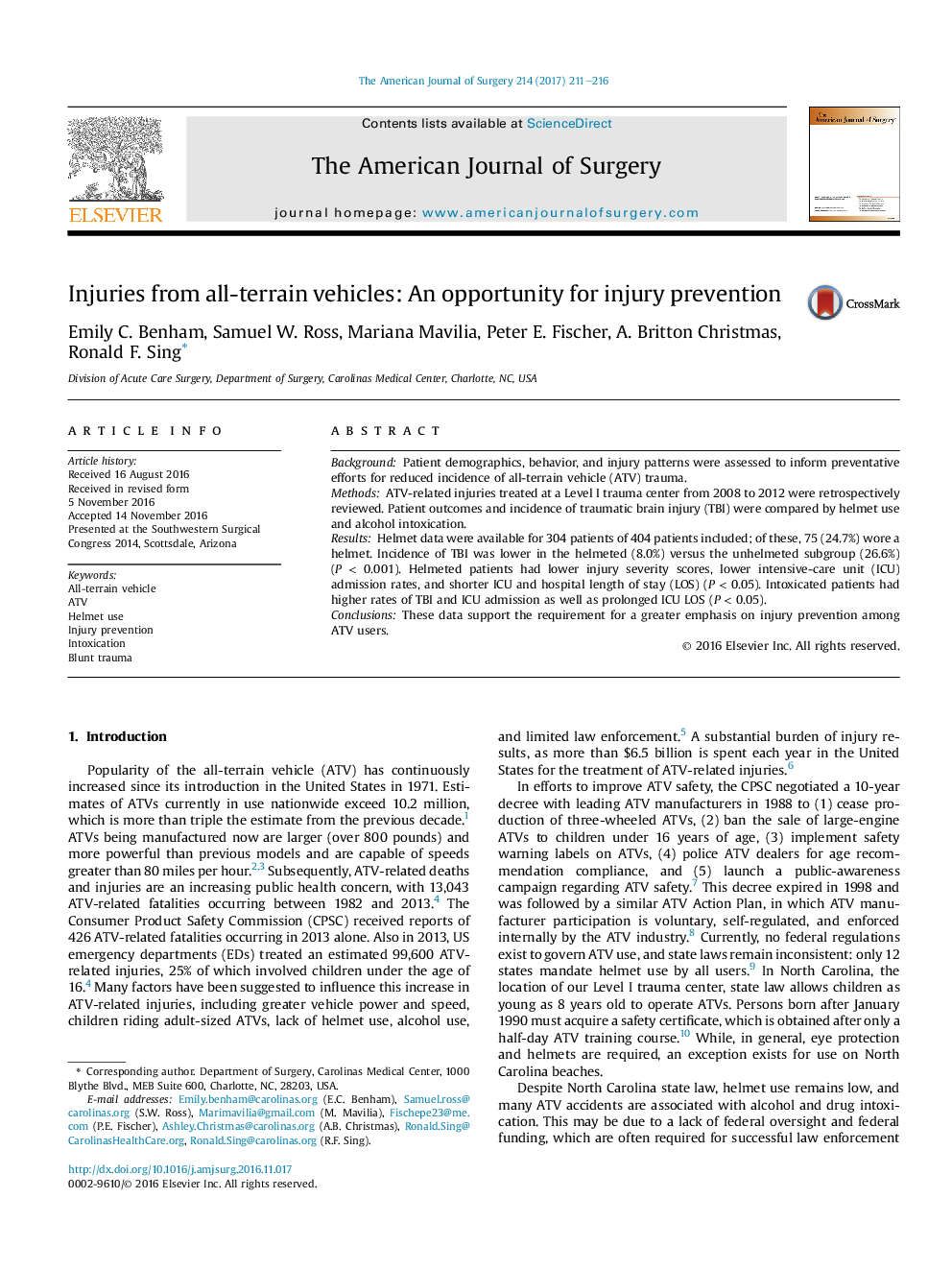| Article ID | Journal | Published Year | Pages | File Type |
|---|---|---|---|---|
| 5731008 | The American Journal of Surgery | 2017 | 6 Pages |
â¢A level I trauma center's ATV injury experience was examined over 5 years.â¢Few patients wore helmets in this series (24.7%).â¢Helmet use was found to be protective against injury severity, TBI, and longer LOS.â¢18% of patients were intoxicated, which correlated with TBI and longer ICU LOS.â¢On multivariate analysis, helmet use was the only protective factor against TBI.
BackgroundPatient demographics, behavior, and injury patterns were assessed to inform preventative efforts for reduced incidence of all-terrain vehicle (ATV) trauma.MethodsATV-related injuries treated at a Level I trauma center from 2008 to 2012 were retrospectively reviewed. Patient outcomes and incidence of traumatic brain injury (TBI) were compared by helmet use and alcohol intoxication.ResultsHelmet data were available for 304 patients of 404 patients included; of these, 75 (24.7%) wore a helmet. Incidence of TBI was lower in the helmeted (8.0%) versus the unhelmeted subgroup (26.6%) (PÂ <Â 0.001). Helmeted patients had lower injury severity scores, lower intensive-care unit (ICU) admission rates, and shorter ICU and hospital length of stay (LOS) (PÂ <Â 0.05). Intoxicated patients had higher rates of TBI and ICU admission as well as prolonged ICU LOS (PÂ <Â 0.05).ConclusionsThese data support the requirement for a greater emphasis on injury prevention among ATV users.
